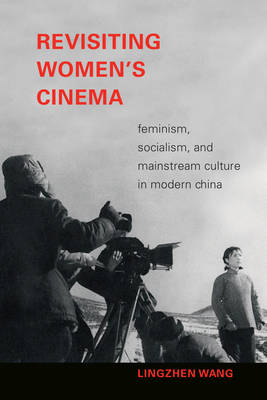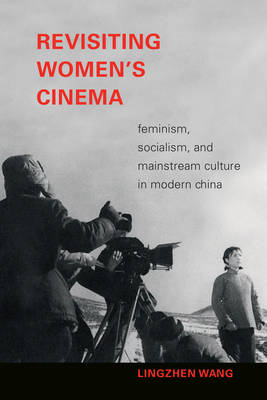
- Afhalen na 1 uur in een winkel met voorraad
- Gratis thuislevering in België vanaf € 30
- Ruim aanbod met 7 miljoen producten
- Afhalen na 1 uur in een winkel met voorraad
- Gratis thuislevering in België vanaf € 30
- Ruim aanbod met 7 miljoen producten
Zoeken
€ 164,95
+ 329 punten
Uitvoering
Omschrijving
In Revisiting Women's Cinema, Lingzhen Wang ponders the roots of contemporary feminist stagnation and the limits of both commercial mainstream and elite minor cultures by turning to socialist women filmmakers in modern China. She foregrounds their sociopolitical engagements, critical interventions, and popular artistic experiments, offering a new conception of socialist and postsocialist feminisms, mainstream culture, and women's cinema. Wang highlights the films of Wang Ping and Dong Kena in the 1950s and 1960s and Zhang Nuanxin and Huang Shuqin in the 1980s and 1990s to unveil how they have been profoundly misread through extant research paradigms entrenched in Western Cold War ideology, post-second-wave cultural feminism, and post-Mao intellectual discourses. Challenging received interpretations, she elucidates how socialist feminism and culture were conceptualized and practiced in relation to China's search not only for national independence and economic development but also for social emancipation, proletarian culture, and socialist internationalism. Wang calls for a critical reevaluation of historical materialism, socialist feminism, and popular culture to forge an integrated emancipatory vision for future transnational feminist and cultural practices.
Specificaties
Betrokkenen
- Auteur(s):
- Uitgeverij:
Inhoud
- Aantal bladzijden:
- 312
- Taal:
- Engels
- Reeks:
Eigenschappen
- Productcode (EAN):
- 9781478009757
- Verschijningsdatum:
- 22/01/2021
- Uitvoering:
- Hardcover
- Formaat:
- Genaaid
- Afmetingen:
- 152 mm x 229 mm
- Gewicht:
- 580 g

Alleen bij Standaard Boekhandel
+ 329 punten op je klantenkaart van Standaard Boekhandel
Beoordelingen
We publiceren alleen reviews die voldoen aan de voorwaarden voor reviews. Bekijk onze voorwaarden voor reviews.







